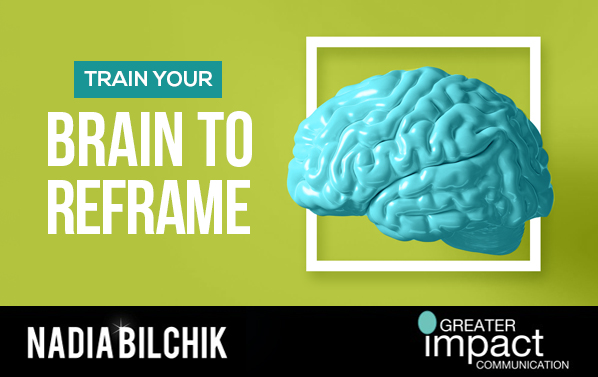
As we navigate the minefields of our professional and daily lives, we will inevitably face challenging situations, like insults and angry emails, or those passive-aggressive disses, like being ignored and ghosted, or left off an invitation list. Unfortunately, one of the hallmarks of these situations is a lack of communication and information, which makes decoding and responding to them doubly difficult and disempowering.
Retrain Your Brain to Reframe
The urge to lash back immediately with some cutting rejoinder or matching insult is not going to be that helpful. Instead, there is a more empowering alternative: you can retrain your brain to reframe. As the famed neurologist and psychotherapist Viktor E. Frankl said, “between stimulus and response, there is a space. In that space is our power to choose our response. In our response lies our growth and our freedom.”
That is why your first response should be to pause and think about what has just happened or been said. This is when you take a breath. This advice can be applied to all kinds of challenging situations, whether receiving an email that upsets or frustrates you, hearing a hurtful comment, or being told that someone has a party that you are not invited to.
Assess Your Initial Reaction
Our default tendency is to make assumptions and take things personally. That is why it is critical that each time you find yourself agonizing, ask yourself these questions: Is this true? Is this valid? Is my reaction helping or hurting me?
The third and most crucial step is to reframe.
This is the most powerful technique because once we look at a situation differently, our psyche changes. You may need to ask yourself whether you are reading too much into the situation. Perhaps the individual was under stress when they wrote that nasty email. Or, the gathering they are having (that you were not invited to) was only for very close friends. Ask yourself if you would have included this individual if you were only having a small gathering.
It is often the case that people jump to conclusions in the absence of accurate information. In some cases, the conclusion can turn out to be completely inaccurate or a projection of the beliefs you bring to the table. William Shakespeare had this to say about how to respond to an interpersonal challenge and perceived insult when he had Hamlet observe “there is nothing good nor bad, but thinking makes it so.”
Then What?
If, for argument’s sake, you were spot on, and in fact, the person writing the email is furious with you or the comment made was intended to hurt you, and yes, your friend has purposefully excluded you? That’s when you allow yourself to feel the “ouch,” accept that it sucks, and then determine the long-term impact the event will have on your life. If Viktor Frankl could reframe while he was in a concentration camp, then every one of us can use these simple and powerful techniques to navigate the complexities of our lives.



